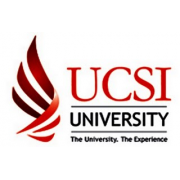MSc Food Science
- Field Of Study:
- Arts, Humanities & Social Sciences, Hotel, Food & Tourism
- Level Of Study:
- Postgraduate
- Course Subject:
- Food Sciences
- Course Intake:
- January, May
The coursework-based MSc Food Science was designed with one objective: To prepare postgraduate learners for a fast-track career in the multi-billion-dollar food industry. Incorporating the latest industrial practices, the programme addresses complexities in food production and learners will better comprehend the way technological advancement affects the industry.
The interdisciplinary nature of food technology, food production and food science is also encompassed in the programme and learners will foster an intimate understanding of vital industrial processes in food chemistry, microbiology, as well as quality and processing, among others. And with a business component in the programme, learners can rest assured that they will possess the skill set to make uncertainty work to their advantage.
Designed to match Malaysia’s ambitions to be a global leader in the industry, the course prepares learners for critical roles in a sector that is facing a dearth of talent. Opportunities to go beyond borders also abound as graduates are sought after to manage and sustain the food production ecosystem that is essentially the lifeblood of communities worldwide.
Teaching and Learning Features
Anchored on an outcome-based approach, the programme’s delivery involves a rigorous process of conjecture and refutation that hones a learner’s cognitive and communication skills. Two-way discourse is promoted over rote learning and students will develop their critical thinking skills as they engage in collegial, but intense, discussions. Industrial relevance is another key feature of the programme and learners will test their assumptions as they address various case studies that highlight industrial challenges in food technology, quality and safety, among others. The holistic approach is bolstered further by research – an important element in the course – and learners are encouraged to present their scholarly work at national scientific meetings and publish a peer-reviewed manuscript at the end of their programme.
Assessment is another integral part of the learning process. Most students will be assessed throughout the duration of their course and oral presentations, written reports, critical analysis of scientific data, as well as one’s involvement in individual or team-based projects, are some of the criteria for evaluation. Apart from instilling independence and drive in learners, this mode of learning also encourages one to keep abreast of developments in the industry, inculcating a passion for lifelong learning.
Entry Requirements
Academic Requirements
- A recognized Bachelor Degree with honours in the relevant disciplines of Food Science, Nutrition, Biotechnology, Applied sciences, Agricultural Biology, Microbiology, among others; with a minimum of 60% or theclassification of 2nd Lower.
- Applicants without sufficient academic qualifications may also be considered for admission if they possess evidence of adequate work experience.
- Certain courses require students to have sufficient mastery of the basic concepts. The lack of this may require students to take up various basic courses at undergraduate level before proceeding.
English Language Requirements
The medium of instruction of this programme is English. Thus, the student must posses one of the following qualification:
- TOFEL: a minimum score of 550 (paper-based) or a minimum score of 79 with no less than 17 in each four components(internet-based)
- IELTS: a minimum score of 6.0
- Undergraduate degree with English as its medium of instruction
Candidates, who fail to fulfill any of the above, may be required to take an English Proficiency subject at the University to attain the required language proficiency.
Career Opportunities
- Food manufacturing to meet increasing consumer demand for healthy and nutritious food
- Production supervision / management, manufacturing, waste and environmental management
- Quality assurance and food safety
- Food chemistry
- Food microbiology
- Food engineering support- process and equipment optimisation
- Research and development of new food products and processing technologies
- Marketing and sales
- Civil service at government and regulatory bodies like the Ministry of Agriculture and the Ministry of Health, among others
- Academia – Teaching and research positions at universities (Basic and applied)
- Involvement with international organisations like the Food and Agriculture Organisation of the United Nations (FAO)
Subjects Offered
Semester 1
- Research Methodology for Scientists
- Academic Communication
- Food Analysis*
- Food Analysis*
Semester 2
- Advanced Food Quality & Safety*
- Contemporary Issues in Food Science
- Master Research Project Planning & Proposal Presentation
- Science Elective: Choose One
- Innovative Food Processing Technologies*
- Food Biotechnology*
- Applied Bioprocessing*
- Food Product Development & Commercialization*
- Dietary Supplements & Functional Foods
- Food Security & Sustainability
Semester 3
- Master Research Project I *
Semester 4
Master Research Project II *
Science Elective: Choose One
- Innovative Food Processing Technologies*
- Food Biotechnology*
- Applied Bioprocessing*
- Food Product Development & Commercialization*
- Dietary Supplements & Functional Foods
- Food Security & Sustainability
MBA Elective: Choose One
- Marketing Management
- Financial Management & Policy
- Information Technology for Managers
- Blue Ocean Strategy
* Science lab classes
Source: UCSI University
